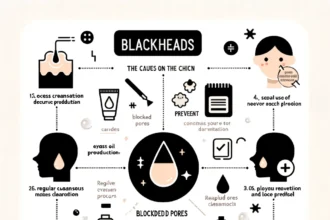But wait—are these terms interchangeable? Spoiler alert: they’re not, and confusing one for the other could be the missing puzzle piece in your skincare routine. Let’s dive deep into this topic, separating fact from fiction and providing you with a comprehensive guide to mastering the art of skin hydration and moisturization.
The Core Difference: Hydration vs. Moisturization
First things first, understanding the fundamental difference between hydrating and moisturizing is crucial:
- Hydration refers to the process of increasing water content within the skin cells, leading to a plump, elastic, and healthy-looking complexion. Think of it as quenching your skin’s thirst.
- Moisturization, on the other hand, involves creating a barrier on the skin’s surface to lock in moisture and protect it from evaporating. Imagine it as sealing a leak in a water bottle.
Why Your Skin Needs Both
Your skin, the body’s largest organ, requires a delicate balance of both hydration and moisture to maintain its health, resilience, and youthful appearance. Without adequate hydration, skin can appear dull, lax, and aged due to the lack of water. Without effective moisturization, even well-hydrated skin can suffer from dryness and irritation due to the loss of essential moisture.
The Science Behind Hydration and Moisturization
Hydrating the Skin:
Hydration is all about water. Ingredients that are humectants, such as hyaluronic acid, glycerin, and aloe vera, are superheroes in the world of skin hydration. They attract water molecules to the skin cells, boosting their water content.
Real-life Example: Imagine using a hyaluronic acid serum. Hyaluronic acid can hold up to 1000 times its weight in water, drawing moisture from the air into your skin, effectively giving your skin a drink of water.
Moisturizing the Skin:
Moisturizers work by creating a protective layer on the surface of the skin. Ingredients like dimethicone, petrolatum, and plant oils play the role of occlusives and emollients, sealing in moisture and repairing the skin’s barrier.
Real-life Example: Consider the feeling of applying a rich, nourishing cream on a windy, cold day. The cream forms a protective shield, keeping your skin soft, smooth, and shielded from the harsh elements.
Identifying Your Skin’s Needs
Determining whether your skin needs hydration, moisturization, or both depends on your skin type and the current state of your skin:
- Dry Skin: Often lacks oil and moisture. Benefit: Moisturizing to replenish oils.
- Dehydrated Skin: Lacks water. Benefit: Hydrating to increase water content.
- Oily Skin: May still be dehydrated. Benefit: Lightweight hydrating products.
- Combination Skin: May require a mix of hydration and moisturization, tailored to different areas.
Expert Tips for Achieving Balanced Skin
- Layer Like a Pro: Start with a hydrating serum followed by a moisturizer to lock in the hydration.
- Choose According to Climate: In humid climates, focus on hydration. In dry climates, amp up the moisturization.
- Nighttime is Prime Time: Use overnight masks or heavier creams at night when the skin’s barrier repair mechanism kicks into high gear.
- Don’t Forget Inside Out Hydration: Drinking ample water and maintaining a diet rich in omega-3 fatty acids and antioxidants support skin hydration and barrier function from the inside.
Ingredient Spotlight
- Hyaluronic Acid: A hydration hero, ideal for all skin types.
- Glycerin: A humectant that draws water into the skin, suitable for sensitive skin.
- Ceramides: Lipids that help form the skin’s barrier and help skin retain moisture.
- Squalane: A lightweight, plant-derived oil that mimics skin’s natural oils, excellent for moisturization.
Tailoring Your Routine
- For Dry Skin: Opt for creamy, rich textures in moisturizers and look for serums with hyaluronic acid.
Final Thoughts
Mastering the art of hydrating and moisturizing your skin is akin to providing it with the perfect diet for health and resilience. By understanding and responding to your skin’s unique needs, you can unlock the door to a radiant, youthful complexion. Remember, your skin’s needs can change with the seasons, your lifestyle, and age, so be adaptable and listen to your skin.
Embrace the journey of discovering the ideal hydration and moisturization balance for your skin. The results? A happy, healthy skin barrier that’s ready to face the world, come wind or shine.







